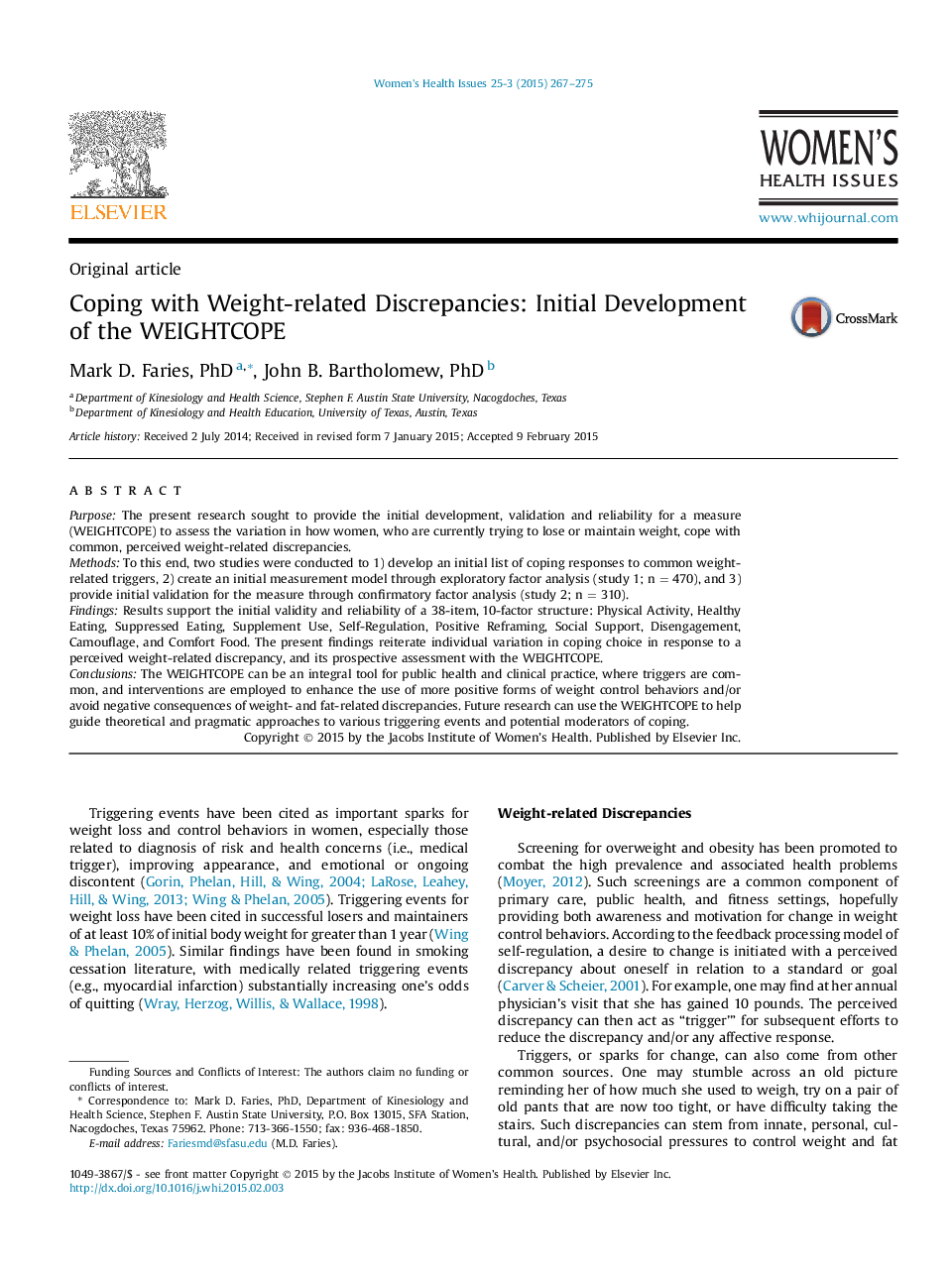| Article ID | Journal | Published Year | Pages | File Type |
|---|---|---|---|---|
| 1093086 | Women's Health Issues | 2015 | 9 Pages |
PurposeThe present research sought to provide the initial development, validation and reliability for a measure (WEIGHTCOPE) to assess the variation in how women, who are currently trying to lose or maintain weight, cope with common, perceived weight-related discrepancies.MethodsTo this end, two studies were conducted to 1) develop an initial list of coping responses to common weight-related triggers, 2) create an initial measurement model through exploratory factor analysis (study 1; n = 470), and 3) provide initial validation for the measure through confirmatory factor analysis (study 2; n = 310).FindingsResults support the initial validity and reliability of a 38-item, 10-factor structure: Physical Activity, Healthy Eating, Suppressed Eating, Supplement Use, Self-Regulation, Positive Reframing, Social Support, Disengagement, Camouflage, and Comfort Food. The present findings reiterate individual variation in coping choice in response to a perceived weight-related discrepancy, and its prospective assessment with the WEIGHTCOPE.ConclusionsThe WEIGHTCOPE can be an integral tool for public health and clinical practice, where triggers are common, and interventions are employed to enhance the use of more positive forms of weight control behaviors and/or avoid negative consequences of weight- and fat-related discrepancies. Future research can use the WEIGHTCOPE to help guide theoretical and pragmatic approaches to various triggering events and potential moderators of coping.
